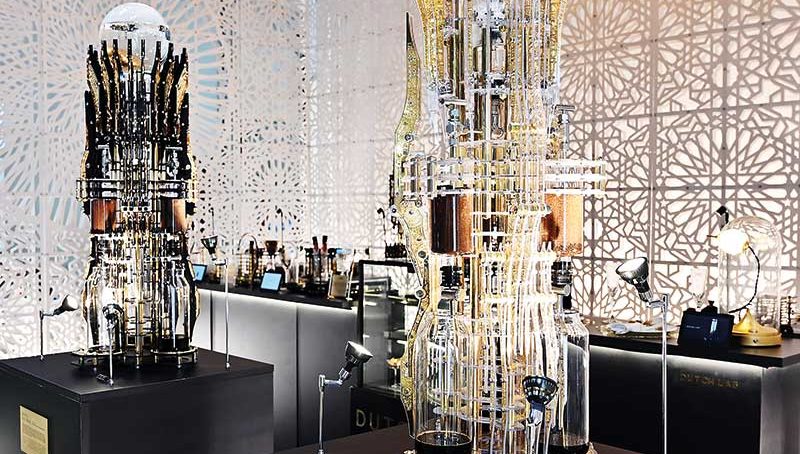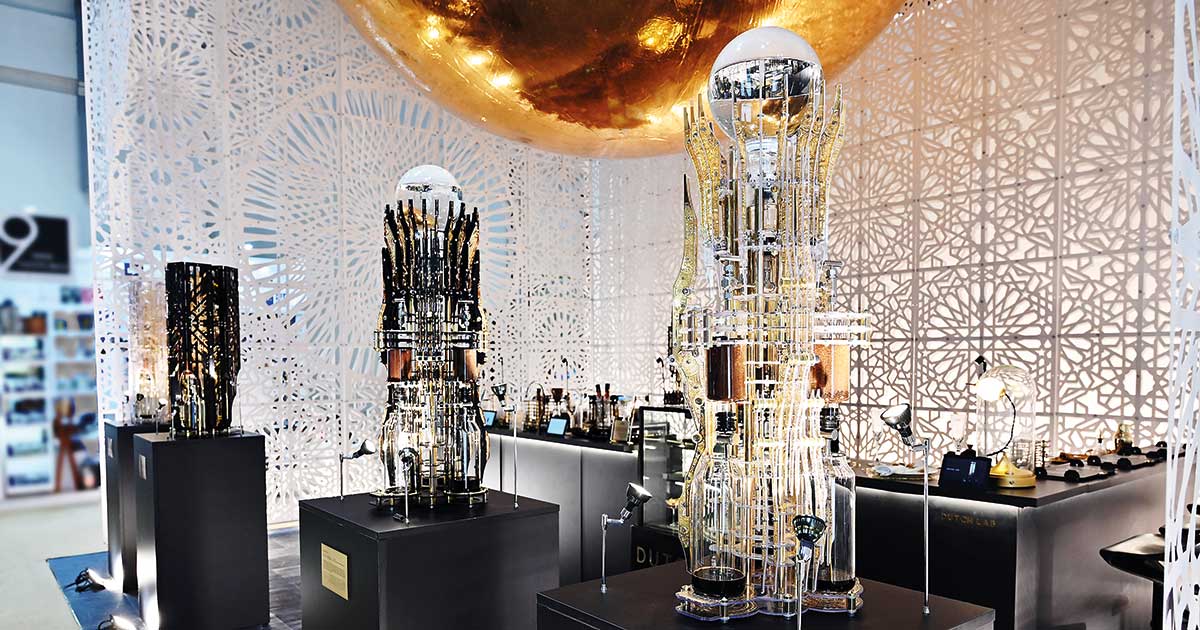Despite there being more choice of hot and cold beverages than ever before, our thirst for coffee, it seems, remains insatiable. HN tracks the latest trends in this bullish industry from crop to cup
Data shows that we remain a global community of coffee lovers, with an estimated 2.25 billion cups of our favorite drink consumed daily throughout the world. Global consumption is forecast to rise to a record 163.2 million 60-kilo bags in 2018/19, according to figures released by the US Department of Agriculture. In a reflection of rising demand and buoyed by a bumper harvest in Brazil, world coffee production is also expected to hit a new high of 171.2 million bags over the same period, up 11.4 million on the previous year.
However, while coffee continues to retain its ranking as one of the most popular beverages in the world, tastes are changing and the market is diversifying to keep up with growing demand for a broader, more creative mix of top quality products. Aside from having a healthy appetite for experimenting with new varieties of coffee-based beverages, today’s consumers are more inclined than ever before to want the full picture about what they’re drinking, from crop to cup. And then there’s the small matter of how attractive or instagrammable the final product looks; appearances, it seems, definitely matter.
T is for traceability
It may have taken several years and plenty of campaigning, but today, there is an understanding amongst stakeholders that the coffee economy must be sustainable and inclusive. Consumers, too, are keen to see the producing nations in Africa, Asia, Latin America and the Pacific benefiting from what is, for many, their number one export. Against this backdrop, the industry has moved to not only heighten its involvement and help producers to achieve these goals, but also share its progress with a customer base that wants detailed information. From addressing water pollution issues arising from wet processing to implementing projects aimed at improving cultivation and bettering the living standards of farm workers, initiatives are gathering pace and industry players are keen to highlight the part they are playing in making things happen. Nestlé Nespresso SA regularly updates consumers on the latest developments in its AAA Sustainable Quality™ Program which is supporting more than 100,000 farmers in 13 countries by helping to improve the yield and quality of their harvests.
Robert Jones, managing director of Coffee Planet, told HN that as a UTZ-certified roaster, the firm believes the best way to ensure fairness and sustainability is in understanding its entire supply chain. “We ensure that we provide the highest quality specialty-graded Arabica coffee beans and manage the full traceability – a pivotal element to nurturing the development of the specialty coffee industry, making sure it’s the best it can be,” he said.
The importance of maintaining the highest possible level of sustainability and ethical sourcing end to end is something that Amin Younes, managing partner at Café Younes, is also all too aware of. He explained that as well as championing key practices from its green coffee suppliers, such as organic processes, fair-trade, socially and environmentally responsible commerce, shade-growing and bird-friendly cultivation methods, the company was implementing similarly eco-friendly practices in its stores. “These include using biodegradable packaging, waste management, organic products and the reuse of coffee ground as natural plant fertilisers,” he said. Nespresso took recycling to a new level this summer when it teamed up with the Swedish lifestyle bike brand Vélosophy to produce a stylish, limited-edition bicycle made from recycled aluminium coffee capsules. Jean-Marc Duvoisin, CEO of Nespresso, said; “Through our collaboration with Vélosophy, we’re illustrating to coffee lovers the potential of recycling their aluminium Nespresso capsules.”
Cold is hot
Such ideas are undoubtedly what today’s customers want to see, alongside the latest trends in coffee products, which most definitely include cold brew. Today’s coffee drinkers have shown themselves to be extremely partial to this less bitter-tasting, mellower coffee, according to Younes, which involves leaving ground coffee beans to soak in cold water for up to 24 hours. “Cold coffee consumption is growing at a very fast rate mainly due to its preference by millennials,” he said. “In hot weather, the ‘younger’ generation has the tendency to indulge in a flavored frappé, while the slightly older generation, who could be considered coffee ‘purists’, usually enjoy cold brews.” Taking cold coffee to another level is Nitro coffee, which is another trend that looks like it’s here to stay. An infusion of nitrogen gives this cold brew a foamy head and creamier texture, while the coffee also has a cascading effect when poured, which may well explain its popularity amongst millennials who enjoy filming and posting their social gatherings.
Picture perfect
Similarly, coffee-based drinks that are big on creativity and therefore highly instagrammable, are also proving popular, as Branislav Beronja, brand manager, MEA, and trainer for the French roaster Cafés Richard, explained. “The tendency is to move from ‘standard’ to the more sophisticated beverage. Therefore, syrup and milk-based coffee applications, such as frappés, mocktails and espresso tonics with a colorful presentation form are in high demand,” he said. The trend for posting photos has also prompted industry players to get creative themselves, according to Younes, who explained that the café makes an effort to pair its beverages accordingly. “This includes not only food and dessert, but even flowers, artwork and books,” he said.
Ditching the dairy
Coffee shops have also moved to keep up with rising demand for milk alternatives, with many customers today expecting to be offered a readily available choice that doesn’t compromise the final product. “Soy, oats and almond milk are all working well with coffee-based drinks,” Beronja said. “Companies are working on the best formulas to meet the barista’s needs, especially when steamed and frothed.” Jones agreed that research and testing had helped to ensure the high standards demanded by today’s discerning customers were met. “Many of our hotel and foodservice customers have implemented milk-based alternatives and our product and training team ensures that we use the best products to match our coffee taste profiles,” he said. “As the world continues to acknowledge these dietary necessities, it is important for us to adapt whilst continuing to provide the best products and coffee experience that customers know and expect.”
A healthier outlook
For an industry that has had a bumpy ride in terms of price fluctuations and often less-than-positive health press reports, there’s been better news as of late. Today, new research suggests that moderate coffee consumption can indeed have significant benefits, as Younes noted. “Caffeine may improve mood, decrease the likelihood of depression, stimulate brain function and protect against Alzheimer’s and Parkinson’s,” he said. Recent studies also suggest that coffee drinkers are less likely to die from coronary disease, heart disease, stroke, diabetes or kidney disease. Time for a cuppa!

























